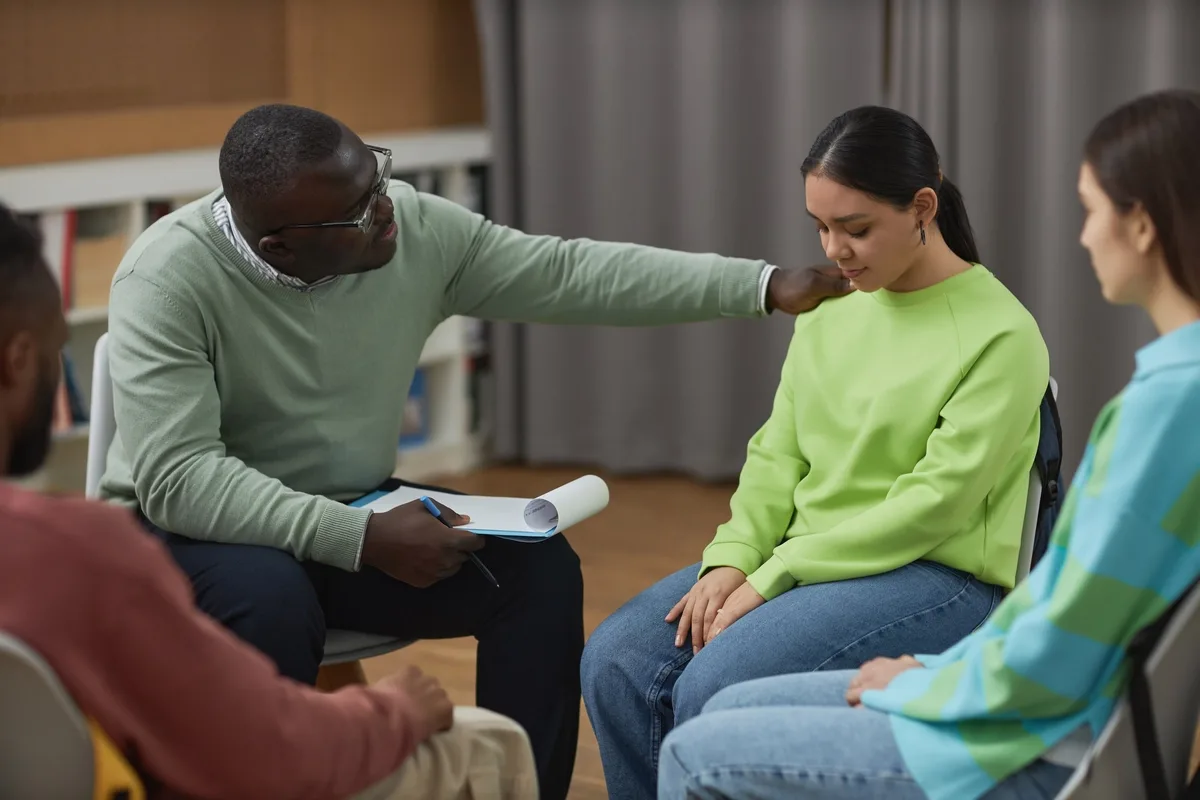24/7 Helpline:
(866) 899-221924/7 Helpline:
(866) 899-2219
Learn more about PTSD Treatment centers in Portia
PTSD Treatment in Other Cities

Other Insurance Options

Molina Healthcare
Beacon

Health Choice

Aetna

MVP Healthcare

Health Partners

Carleon

BlueShield

United Health Care

BHS | Behavioral Health Systems

Magellan

Oxford

Absolute Total Care

Coventry Health Care

CareSource

BlueCross

Sliding scale payment assistance

Optima

Group Health Incorporated

Highmark







Hometown Behavioral Health Services of Arkansas
Hometown Behavioral Health Services of Arkansas is a private rehab located in Hoxie, Arkansas. Homet...

Mid South Health Systems
Mid South Health Systems is a drug and alcohol rehab in Walnut Ridge, Arkansas. They provide outpati...

The Last Resort
The Last Resort Recovery Center specializes in helping adult men overcome substance abuse addiction ...

Goochland Powhatan Community Services
Goochland Powhatan Community Services is a public rehab located in Powhatan, Virginia. Goochland Pow...

Cornerstone Community Counseling
Cornerstone Community Counseling, located in Imboden, Arkansas, offers behavioral health care servic...

Preferred Family Healthcare
Preferred Family Healthcare - Southwest Broad Street offers outpatient services for individuals with...

Ray of Hope Street Ministry
Ray of Hope Street Ministry is a private rehab located in Smithville, Tennessee. Ray of Hope Street ...








































































































































































